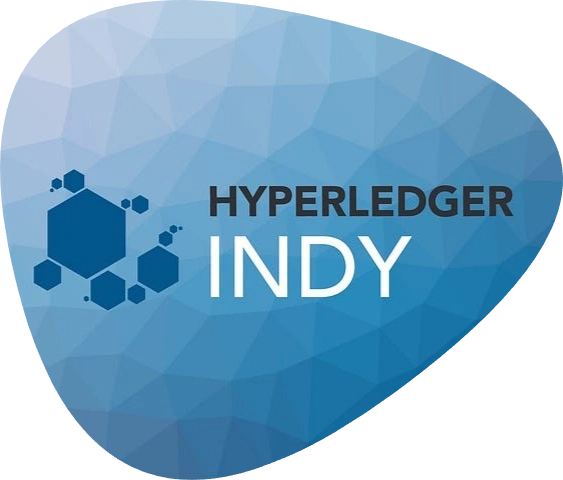Hyperledger Indy Development
Hyperledger Indy is a purpose-built decentralized identity (DID) blockchain framework under the Hyperledger ecosystem, designed specifically for managing digital identities securely and privately. Unlike other blockchain networks designed for general smart contract execution, Indy focuses solely on self-sovereign identity (SSI) — putting individuals and organizations in full control of their identity data without reliance on centralized authorities. Hyperledger Indy is a purpose-built decentralized identity (DID) blockchain framework under the Hyperledger ecosystem, designed specifically for managing digital identities securely and privately. Unlike general-purpose blockchain platforms that handle smart contracts or financial transactions, Indy focuses exclusively on self-sovereign identity (SSI) — enabling individuals, organizations, or even devices to control their identity data without depending on centralized authorities or intermediaries.


Decentralized Identity Framework using Indy – Standards-Compliant and Enterprise-Ready
The Decentralized Identity Framework using Hyperledger Indy enables organizations to build secure, privacy-focused, and user-controlled digital identity ecosystems. Unlike traditional identity management systems that rely on centralized databases and third-party authentication, Indy leverages blockchain technology to establish a self-sovereign identity (SSI) model—where users own and control their identity data independently. Built to support open standards from W3C, Indy natively handles Decentralized Identifiers (DIDs) and Verifiable Credentials (VCs), ensuring global interoperability across platforms, ecosystems, and applications.
Self-Sovereign Identity with Indy – Secure, Interoperable, and User-Owned
Self-Sovereign Identity (SSI) using Hyperledger Indy enables individuals and organizations to take full ownership and control of their digital identity—without relying on centralized authorities or data storage systems. Built specifically for decentralized identity, Indy provides the core infrastructure for creating, issuing, storing, and verifying digital identities using blockchain-based decentralized identifiers (DIDs) and verifiable credentials.

User-Owned Digital Identity
Users fully own and control their identity data through decentralized identifiers (DIDs). There is no dependency on centralized authorities or databases to validate identity.

Selective & Consent-Based Data Sharing
Indy enables selective disclosure, allowing users to share only the necessary information. For example, instead of revealing a birthdate, a user can simply prove they are above 18.

Verifiable Credentials with No Central Storage
Credentials issued through Indy are stored in secure digital wallets, not on the blockchain. Only cryptographic proofs are stored on-chain, reducing data breach vulnerability.

Interoperability Through Global Standards
Indy follows international identity standards set by the W3C. This ensures identity credentials can be used across different platforms, industries, and ecosystems.

Privacy-Preserving Cryptography
Hyperledger Indy supports Zero-Knowledge Proofs, enabling identity verification without exposing personal data. This ensures regulatory compliance with GDPR, HIPAA.

Enterprise and Government Grade Trust Framework
Indy’s permissioned ledger ensures verified participants and secure governance. This makes it ideal for KYC, digital identity programs, education certificates.
Hyperledger Indy Identity Network – Decentralized, Verifiable, and Enterprise-Grade
The Hyperledger Indy Identity Network enables enterprises to build secure, decentralized identity ecosystems where users maintain full control over their personal data. Unlike centralized identity systems that store sensitive information on proprietary servers, Indy leverages blockchain to create a trust framework based on verifiable credentials and decentralized identifiers (DIDs). This ensures identities are authenticated without exposing private data or relying on third-party intermediaries.

Enterprise Indy SSI Framework – Decentralized, Compliant, and Future-Ready
The Enterprise Indy SSI Framework enables organizations to build secure, user-controlled digital identity ecosystems using Self-Sovereign Identity (SSI) principles. Powered by Hyperledger Indy, this framework eliminates reliance on centralized identity providers and instead assigns full ownership of identity data to users enabling trust without intermediaries. At its core, Hyperledger Indy provides a decentralized identity ledger where only cryptographic proofs and identity schemas are stored on-chain. Personal data remains off-chain in secure digital wallets, ensuring maximum privacy and minimal data exposure. This architecture drastically reduces the risk of mass data breaches and identity theft.
FAQ
What is Hyperledger Indy and why is it used for digital identity?
Hyperledger Indy is a blockchain framework built specifically for decentralized identity (SSI – Self-Sovereign Identity). It enables users and organizations to create, manage, and verify digital identities without relying on centralized servers. Instead of storing personal data on the blockchain, Indy stores only cryptographic proofs, ensuring privacy and security. This makes it ideal for identity verification, KYC, and digital credential systems.
How does Indy ensure privacy and protect user personal data?
Indy uses decentralized identifiers (DIDs) and verifiable credentials so that personal information is stored locally in the user’s wallet, not on-chain. Only encrypted metadata and proofs are written to the ledger. It also supports Zero-Knowledge Proofs, enabling users to prove something without revealing unnecessary data (e.g., verifying that they are 18+ without sharing birthdate). This privacy-by-design model eliminates risk of identity leaks.
What programming tools and SDKs are used in Indy development?
Hyperledger Indy offers a set of tools such as Indy SDK, Aries Framework (for communication and credential exchange), and Ursa (for cryptography). These tools provide ready-made APIs for creating DIDs, issuing credentials, and verifying identities. Developers can integrate Indy into any app using languages like Python, Java, Node.js, and Rust, making enterprise integration straightforward.
Is Hyperledger Indy interoperable with other blockchain identity systems?
Yes. Indy follows W3C DID and Verifiable Credential standards, allowing identities to be used across multiple networks and applications. With Hyperledger Aries, Indy networks can communicate with other SSI systems (e.g., mobile identity wallets, KYC platforms). This ensures that credentials issued in one ecosystem can be verified anywhere — just like using a real passport or ID card.
What type of applications can be built using Hyperledger Indy?
Indy is used to build systems requiring secure identity verification, such as reusable KYC modules, university certificate verification platforms, digital ID for citizens, patient identity systems, and enterprise workforce access. Any solution requiring verifiable digital identity without centralized authority can benefit from Indy. It reduces fraud, speeds onboarding, and ensures strong privacy protection.
Is Hyperledger Indy suitable for enterprises and government projects?
Yes. Indy is designed as a permissioned blockchain, meaning only trusted organizations can operate validator nodes, ensuring governance and compliance. Indy’s architecture aligns with regulations such as GDPR, HIPAA, and data protection standards. Many government-backed digital identity projects globally use Indy for national ID, education certificates, and citizen authentication.
How secure is Indy against hacking or identity theft?
Indy follows a decentralized, cryptographic identity model, eliminating the need for centralized data storage. Since personal data never resides on the blockchain, hackers cannot steal identity records even if they access the ledger. Zero-Knowledge Proofs and cryptographic signatures ensure credentials are tamper-proof and verifiable, providing enterprise-grade security and trust.

